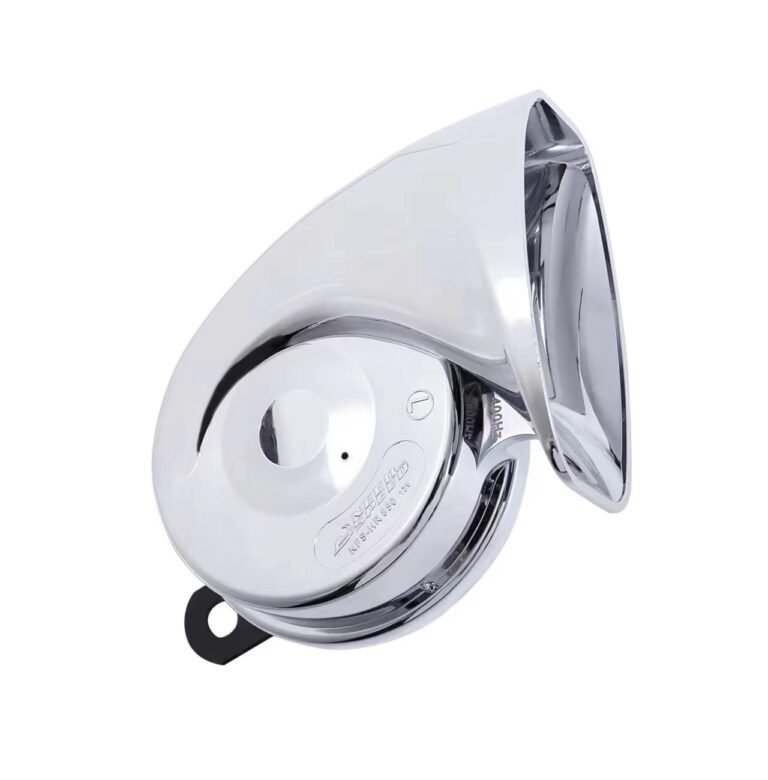Installing the wrong loud horn without knowing local laws can result in fines, failed inspections, or even losing key clients. Here’s how to avoid that.
Yes, you can install a louder horn on your car, but it must comply with local noise laws and electrical compatibility. Always choose legally-approved, high-quality products to stay compliant and safe.
Let’s dive into the legal, technical, and safety aspects of upgrading your vehicle’s horn the right way.
Is It Legal to Install a Louder Horn on Your Car?
Before upgrading, it's critical to check car horn noise law in your target market. Most countries have specific regulations regarding the legal horn upgrade volume. For instance, in the Philippines, the legal limit is often capped at 115 dB, while in Europe, the range is stricter, typically between 93–112 dB depending on vehicle type.
Using a horn louder than allowed may result in fines, inspection failure, or road use bans. FHL / GBSY / JS-TECH products are designed to meet these louder horn legality guidelines and are ideal for buyers.
Request testing documents and certification proof from suppliers to confirm compliance before making large orders.
What Are the Risks of Using an Overly Loud Car Horn?
While louder horns improve vehicle presence on the road, excessive sound introduces several risks. Horns over 120 dB can cause hearing damage from car horn, especially in close-range exposure. Prolonged exposure can lead to tinnitus, stress, and even temporary deafness in extreme cases.
More importantly, overly loud horns can annoy other drivers and pedestrians, potentially leading to complaints or accidents. From a legal standpoint, if your product causes damage or distress, your brand reputation could suffer.
FHL horns are carefully tuned to ensure volume does not cross the excessive horn dB risk threshold, balancing performance with safety.
How to Choose a Louder Yet Compliant Horn for Your Vehicle
When sourcing horns, it’s not just about being louder—it’s about being appropriately louder. Look for models labeled as loud but legal horn options, usually in the 100–110 dB range. Anything beyond that must come with documentation proving compliance with your target market's laws.
Check for:
- CE/E-mark certifications
- ISO-compliant testing reports
- Clearly stated approved dB range horn on product packaging
FHL / GBSY / JS-TECH offers a variety of compliant horn selection options for car and motorcycle applications. Each model is tested using high-precision sound level meter horn tools to confirm dB ratings.
Steps to Install a High-Decibel Horn Properly
Installation isn’t just plug-and-play. To correctly install a high-decibel horn, follow this horn installation guide:
- Check Voltage: Make sure your vehicle supports the horn’s voltage (usually 12V or 24V).
- Use a Relay: High-power horns often require a relay to handle the current draw.
- Wire Correctly: Use proper gauge wiring to avoid overheating or voltage drop.
- Secure Grounding: Faulty grounding may result in weak horn performance or damage.
- Test Safely: Use a multimeter and test at a safe distance.
An improperly installed horn may fail or damage the car’s fuse system. Our FHL products come with car horn wiring setup guidance and technical support to ensure smooth installation for B2B clients.
Will a Louder Horn Affect Your Vehicle's Electrical System?
Yes, it can—if not selected properly. A louder horn typically consumes more current. This increased horn power requirement could strain your car’s wiring, relay, or battery if not configured correctly.
Before upgrading, always check:
- Amp draw of the horn (measured in A)
- Recommended fuse rating
- Whether the horn includes an internal relay or needs an external one
Our FHL line considers all these car horn voltage load factors during design. Most models operate within standard amp ratings and are suitable for easy integration. For buyers like Jeremy, this ensures lower return rates and fewer post-sale complaints.
If you're planning a louder horn rollout across multiple vehicle models, always confirm the loud horn amp draw and provide installation support to downstream clients.
Conclusion
Yes, you can install a louder horn—just ensure it’s legal, safe, and installed correctly.


